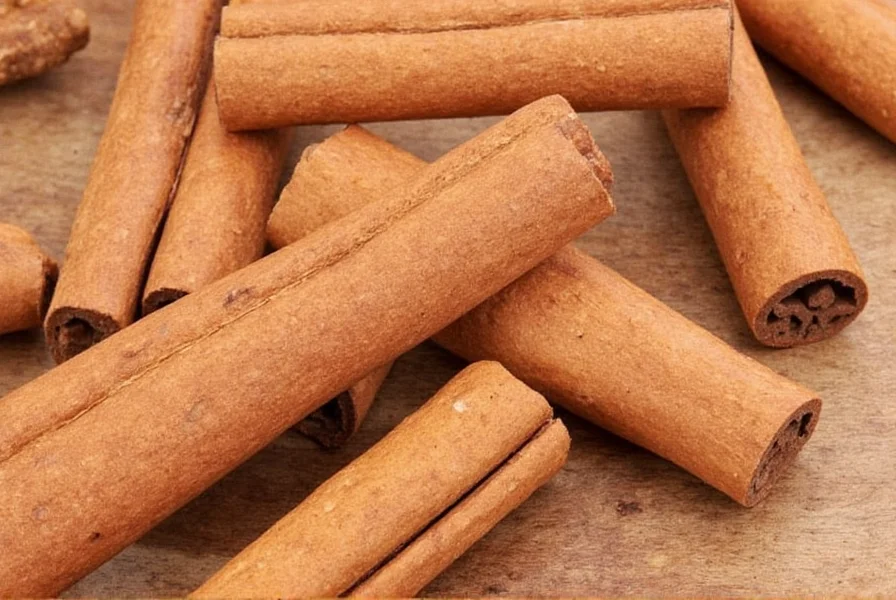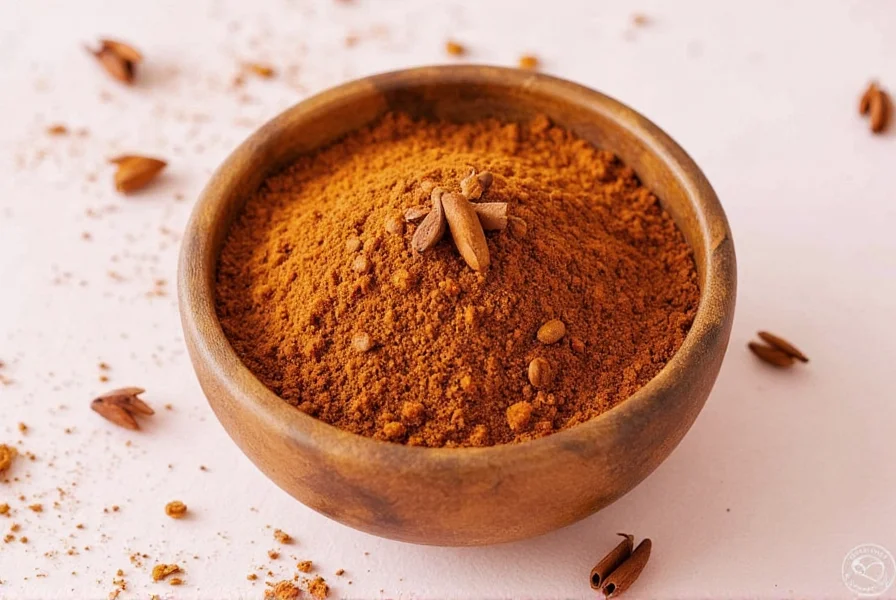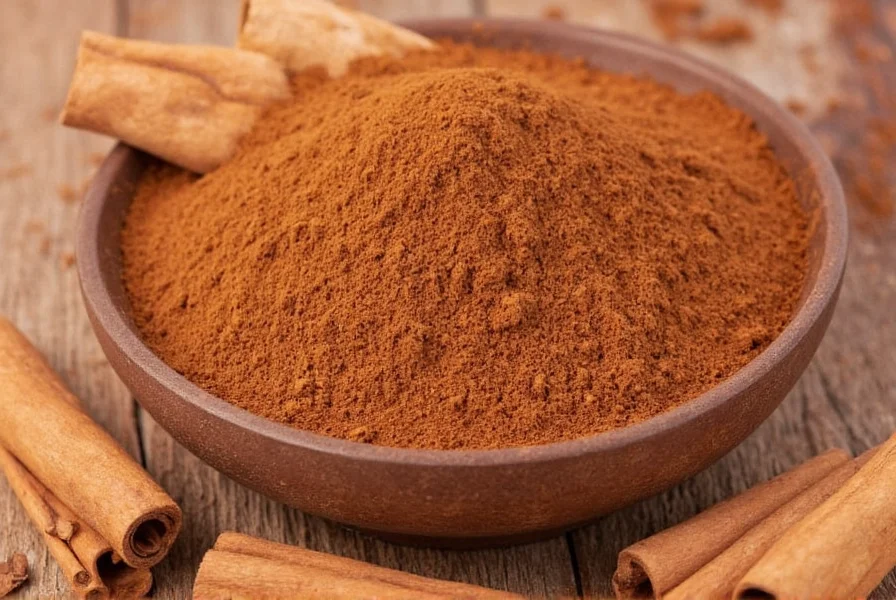Ceylon cinnamon (Cinnamomum verum), often called "true cinnamon," delivers distinctive health advantages backed by emerging scientific research. This delicate, layered spice native to Sri Lanka differs significantly from the more common Cassia cinnamon in both chemical composition and safety profile. Understanding the specific health benefits of Ceylon cinnamon requires examining its unique properties and the current body of scientific evidence.
What Makes Ceylon Cinnamon Special
Ceylon cinnamon contains significantly lower levels of coumarin—a compound that can cause liver damage in high doses—compared to Cassia cinnamon. While Cassia may contain 1-5% coumarin, Ceylon typically has less than 0.04%. This critical difference makes Ceylon the preferred choice for daily cinnamon consumption without health risks. The distinctive compounds in Ceylon cinnamon, particularly cinnamaldehyde and epicatechin, contribute to its therapeutic properties while providing that characteristic warm, sweet flavor.

Science-Backed Health Benefits of Ceylon Cinnamon
Blood Sugar Regulation Support
Multiple clinical studies demonstrate Ceylon cinnamon's potential for improved blood sugar control. Research published in the Journal of the Academy of Nutrition and Dietetics found that 1-3 grams daily significantly reduced fasting blood glucose levels in people with type 2 diabetes. The spice appears to enhance insulin sensitivity and slow gastric emptying, creating more stable glucose metabolism. Unlike pharmaceutical interventions, Ceylon cinnamon offers this benefit with minimal side effects when consumed within recommended limits.
Potent Antioxidant Properties
Ceylon cinnamon ranks among the most antioxidant-rich spices. A comprehensive analysis in Oxidative Medicine and Cellular Longevity identified 41 distinct protective compounds in Ceylon cinnamon, with particularly high concentrations of polyphenols. These antioxidants combat oxidative stress that contributes to chronic disease development. The antioxidant effects of Ceylon cinnamon exceed those of many fruits and vegetables by weight, making it a valuable dietary addition for cellular protection.
Natural Anti-Inflammatory Effects
Chronic inflammation underlies many modern diseases, and Ceylon cinnamon shows promise as a natural anti-inflammatory agent. Laboratory studies indicate that cinnamaldehyde inhibits inflammatory pathways at the cellular level. Research in Food and Chemical Toxicology demonstrated reduced inflammatory markers in subjects consuming Ceylon cinnamon regularly. These Ceylon cinnamon anti-inflammatory benefits may contribute to its protective effects against conditions like arthritis and metabolic syndrome.
Cardiovascular Health Support
Emerging evidence suggests Ceylon cinnamon may support heart health through multiple mechanisms. Clinical trials show modest reductions in LDL cholesterol and triglycerides with regular consumption. The spice also appears to support healthy blood pressure levels by improving endothelial function. While not a replacement for medical treatment, incorporating Ceylon cinnamon represents a sensible dietary strategy for natural heart health support.
| Benefit | Key Compounds | Recommended Daily Amount | Scientific Support Level |
|---|---|---|---|
| Blood sugar regulation | Cinnamaldehyde, epicatechin | 1-3 grams | Strong clinical evidence |
| Antioxidant protection | Polyphenols, flavonoids | 0.5-2 grams | Extensive laboratory evidence |
| Anti-inflammatory effects | Cinnamaldehyde, linalool | 1-2 grams | Moderate clinical evidence |
| Heart health support | Cinnamic acid derivatives | 1.5-3 grams | Preliminary clinical evidence |
Ceylon vs. Cassia: Why the Difference Matters
Most cinnamon sold in supermarkets is Cassia, which contains high coumarin levels that can cause liver toxicity with regular consumption. The Ceylon cinnamon vs Cassia cinnamon comparison reveals crucial differences:
- Ceylon has a delicate, complex flavor while Cassia is harsher and more pungent
- Ceylon forms multiple thin layers when rolled; Cassia forms a single thick roll
- Ceylon contains minimal coumarin (safe for daily use); Cassia requires consumption limits
- Ceylon typically costs more but offers superior safety for regular use
For those seeking the long-term health benefits of cinnamon, Ceylon represents the safer, more sustainable choice. When shopping, look for "Cinnamomum verum" or "true cinnamon" on labels to ensure you're getting authentic Ceylon variety.

Practical Usage Guidelines
To safely incorporate Ceylon cinnamon into your routine:
- Start with 0.5 grams daily (about 1/4 teaspoon) and gradually increase
- Maximum safe daily intake: 3 grams for most adults (consult your physician if taking medications)
- Ideal consumption methods: stirred into oatmeal, added to smoothies, or used in tea
- Avoid taking on an empty stomach if you have digestive sensitivities
- Store in an airtight container away from light to preserve potency
Unlike Cassia cinnamon, Ceylon allows for daily cinnamon consumption without coumarin-related concerns. However, pregnant women and individuals with liver conditions should consult healthcare providers before regular use.
Current Research Limitations
While promising, current research on Ceylon cinnamon has limitations. Many studies use concentrated extracts rather than culinary amounts. Long-term human trials remain limited, and optimal dosing isn't precisely established. The scientific studies on Ceylon cinnamon show consistent short-term benefits, but more research is needed on extended use. Ceylon cinnamon should complement—not replace—standard medical care for health conditions.
Conclusion
Ceylon cinnamon offers distinctive health advantages supported by growing scientific evidence. Its superior safety profile compared to Cassia cinnamon makes it ideal for regular consumption to support blood sugar regulation, reduce inflammation, and provide antioxidant protection. When selecting cinnamon for health-focused dietary use, authentic Ceylon variety delivers the optimal balance of benefits and safety. As with any dietary supplement, moderation and consultation with healthcare providers remain essential, particularly for those managing health conditions or taking medications.
Frequently Asked Questions
What's the recommended daily amount of Ceylon cinnamon?
For most adults, 0.5-3 grams daily (approximately 1/4 to 1 1/2 teaspoons) represents a safe and effective amount. Start with smaller doses (0.5g) and gradually increase as tolerated. Unlike Cassia cinnamon, Ceylon's low coumarin content makes it suitable for regular daily consumption within these limits.
Can Ceylon cinnamon lower blood sugar effectively?
Multiple clinical studies show Ceylon cinnamon can improve blood sugar control, with research indicating 1-3 grams daily may reduce fasting glucose levels by 10-29% in people with type 2 diabetes. It works by enhancing insulin sensitivity and slowing carbohydrate absorption, but should complement—not replace—standard diabetes management.
How can I tell if I'm buying real Ceylon cinnamon?
Authentic Ceylon cinnamon has several distinguishing features: it forms multiple thin, papery layers (vs. Cassia's single thick roll), has a lighter brown color, offers a more delicate sweet flavor, and typically costs more. Check labels for "Cinnamomum verum" or "true cinnamon." Reputable specialty spice retailers are more likely to carry genuine Ceylon variety.
Is Ceylon cinnamon safe for long-term daily use?
Yes, Ceylon cinnamon's extremely low coumarin content (typically less than 0.04%) makes it safe for daily consumption at recommended amounts (up to 3 grams). This contrasts with Cassia cinnamon, which contains 1-5% coumarin and requires consumption limits. However, individuals with liver conditions or those taking medications should consult healthcare providers before regular use.
What's the difference between Ceylon and Cassia cinnamon for health benefits?
Both varieties offer similar health-promoting compounds, but Ceylon cinnamon contains significantly less coumarin, making it safer for regular consumption. Research suggests Ceylon may have slightly higher antioxidant levels, while Cassia has marginally more cinnamaldehyde. For therapeutic use over time, Ceylon's safety profile gives it a clear advantage despite typically higher cost.











 浙公网安备
33010002000092号
浙公网安备
33010002000092号 浙B2-20120091-4
浙B2-20120091-4